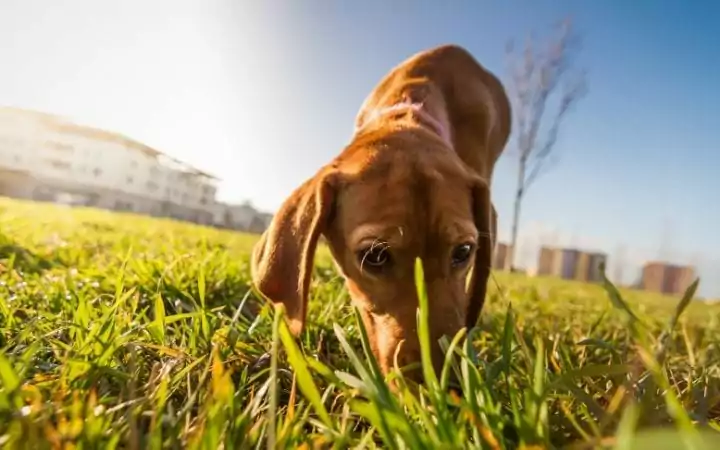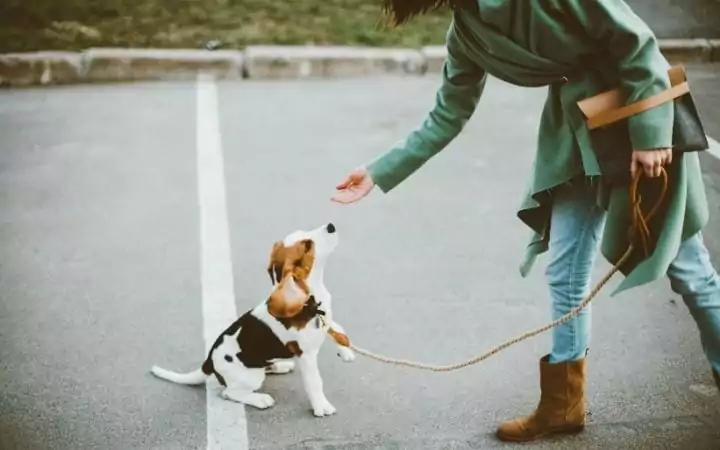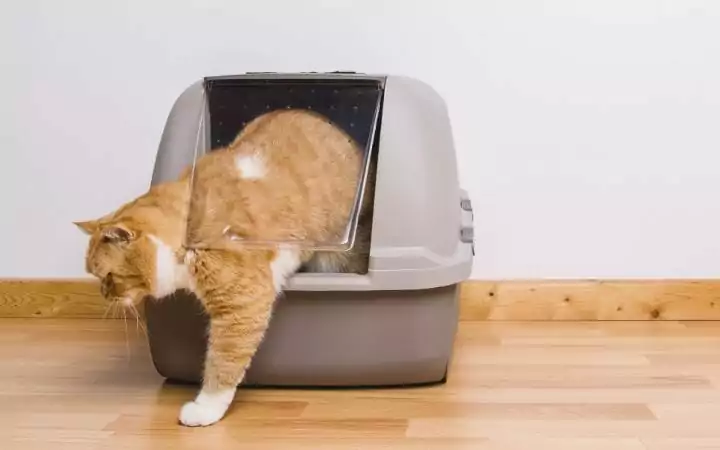There is no doubt that dogs make our lives happier and show us unconditional love every single day. Nonetheless, sometimes they may give us a stomach-churning sensation when they exhibit certain habits. Just think about the time you found Fido rolling on a torn bag full of garbage after you spent hours bathing him!
In this blog post, we discuss the number one gross habit in the human eyes: coprophagia, which is just a fancy name for eating stool, either their own or of another specie. We are answering the most common questions, “why do dogs eat poop?” and “how to stop a dog from eating stool?” with the help of dog behaviorist, Caroline Wilkinson.
Why Do Dogs Eat Poop?
This is the first question that many dog parents ask as soon as they see the undesired behavior, which is actually relatively normal in dogs. Understanding the reasons for coprophagia is vital to correct the behavior. When looking at why dogs eat fecal material, we can find some underlying medical causes and some behavioral causes.
Medical causes of poop eating in dogs
When your canine friend has an internal parasitic infection or a digestive enzyme deficiency, he may not be absorbing all the nutrients from his meals leading to malnutrition and trying to find nutrients in other places, such as poop. Any illness that leads to poor digestion or an increase in appetite, including diabetes and Cushing’s disease, can lead to coprophagia.
Coprophagia cannot only be an underlying sign but also a way to transmit infections and harmful bacteria. For example, Fido can get internal parasites by ingesting the stool of an infected animal.
Other medical reasons why dogs eat poop include:
- Increased appetite as a drug side effect
- A poor-quality diet
- Canine cognitive dysfunction
Behavioral causes of coprophagia in dogs
In a conversation with Caroline Wilkinson, dog behaviorist and owner of Barket Place UK, she explained the most common behavioral causes of dogs eating poop:
“We often see puppies eating poop as they’re both ravenous and highly interested in exploring the world around them. You might see your dog eating poop if they’re bored, trying to get your attention (as don’t we often tend to rush over to them when we see this stomach-turning activity taking place?), or even from a past history of being punished for toileting in the wrong areas”
How can coprophagia be treated?
The treatment of coprophagia is solely based on the cause. The first thing to do is consult with your veterinarian to rule out underlying conditions, this is essential if you see your adult dog suddenly beginning a new habit.
Your veterinarian will take the medical history of your dog and ask:
- What kind of food are you giving your dog?
- Have you observed other changes in your pet’s behavior or appearance?
- Is your pet taking medications or has any medical conditions?
Then your vet will perform a routine physical examination and may perform diagnostic tests such as a fecal analysis to look for parasites. If your vet diagnoses a medical problem, they will prescribe a course of medication or treatment and may advise a dietary change for your pooch and digestive enzyme supplementation. On the other hand, if your vet thinks that the habit is purely a behavior problem, they may recommend seeing a behaviorist in your area.
How to stop a dog from eating poop?
Coprophagia in dogs is a habit that may not go away easily. Consistency is crucial when you are working towards resolving a behavior.
Caroline gave us some advice on how we can work with our dogs to stop them from eating poop:
“Teaching your dog a solid ”leave it”, rewarding them for toileting in front of you, and ensuring they have an appropriate level of activity each day can all help to reduce this behavior. Being “vigilant in cleaning up your garden” is also key in reducing the chance your dog will have to do the wrong behavior – but should not replace medical or behavioral support.”
Another helpful recommendation is that if you find your canine companion eating your cat’s stool, you can make the litter tray unaccessible for your dog by placing it in a room with a cat flap.
Summary
Coprophagia is mostly a harmless event for your dog. However, it is best to work with a professional to stop the behavior because it can carry some consequences such as parasites and bacteria, mainly if they eat other species’ stool. Remember to maintain hygiene and wash your hands when you come in contact with your dog’s mouth.
If you liked this article, you can check out other canine behaviors in our blog HERE.




